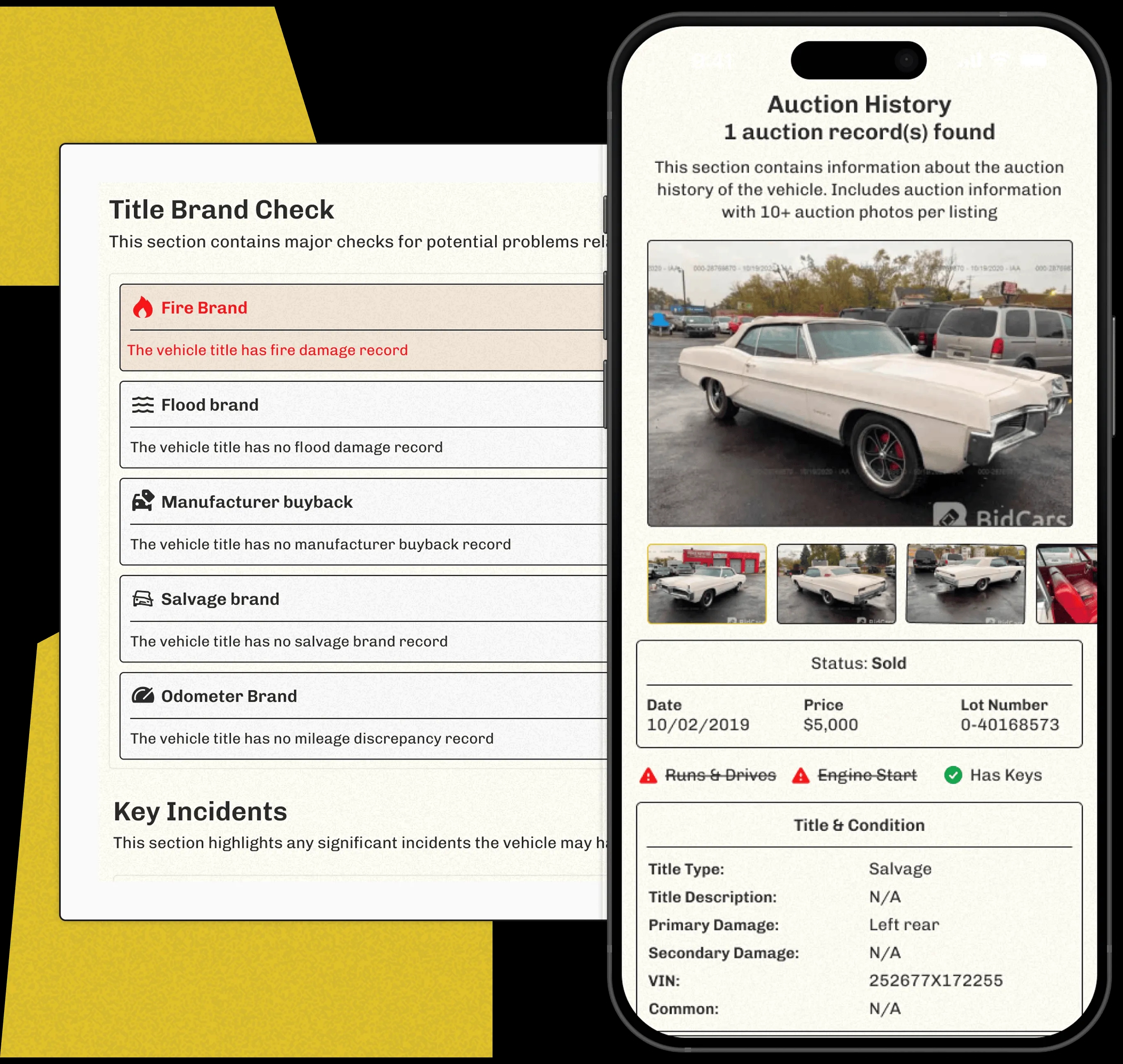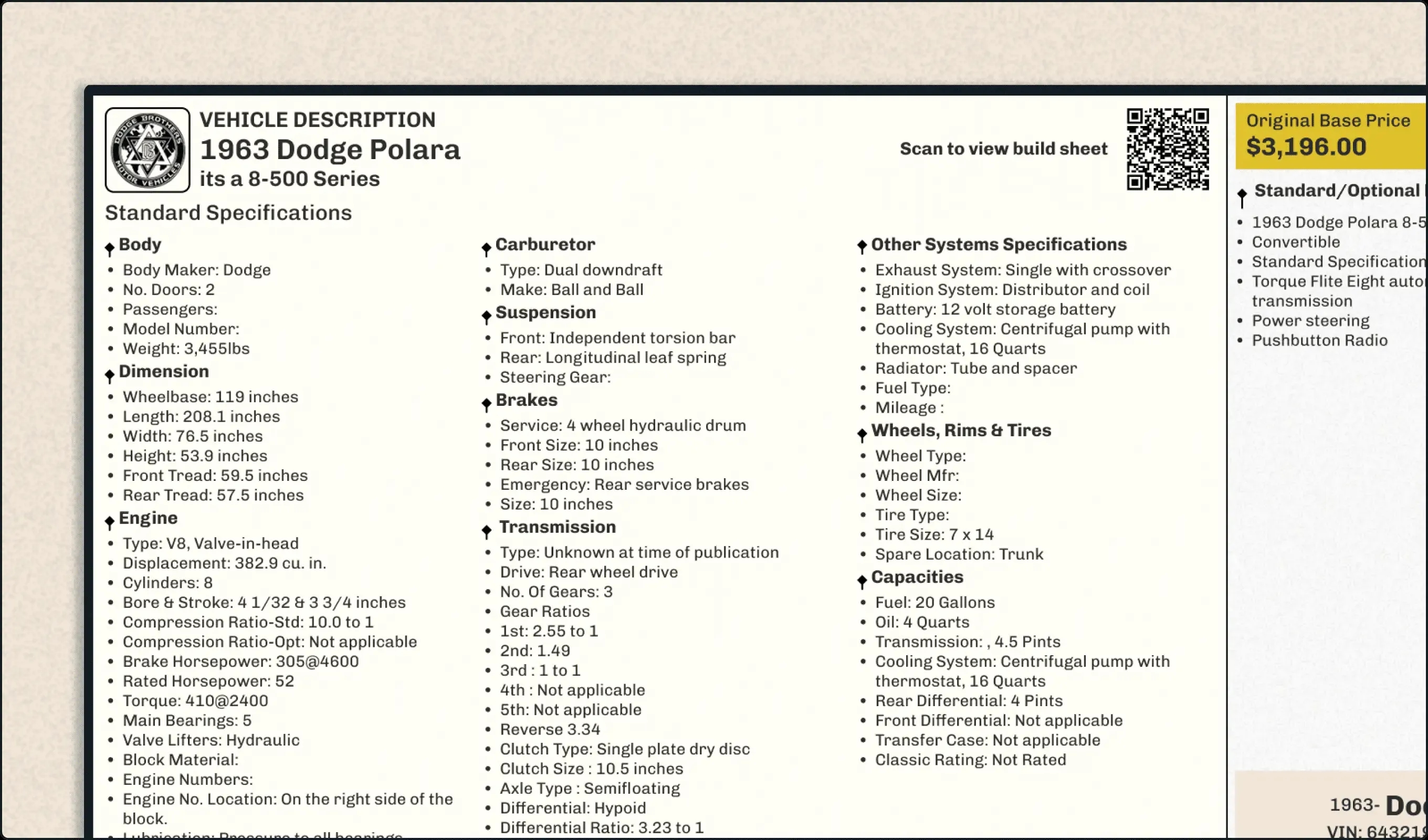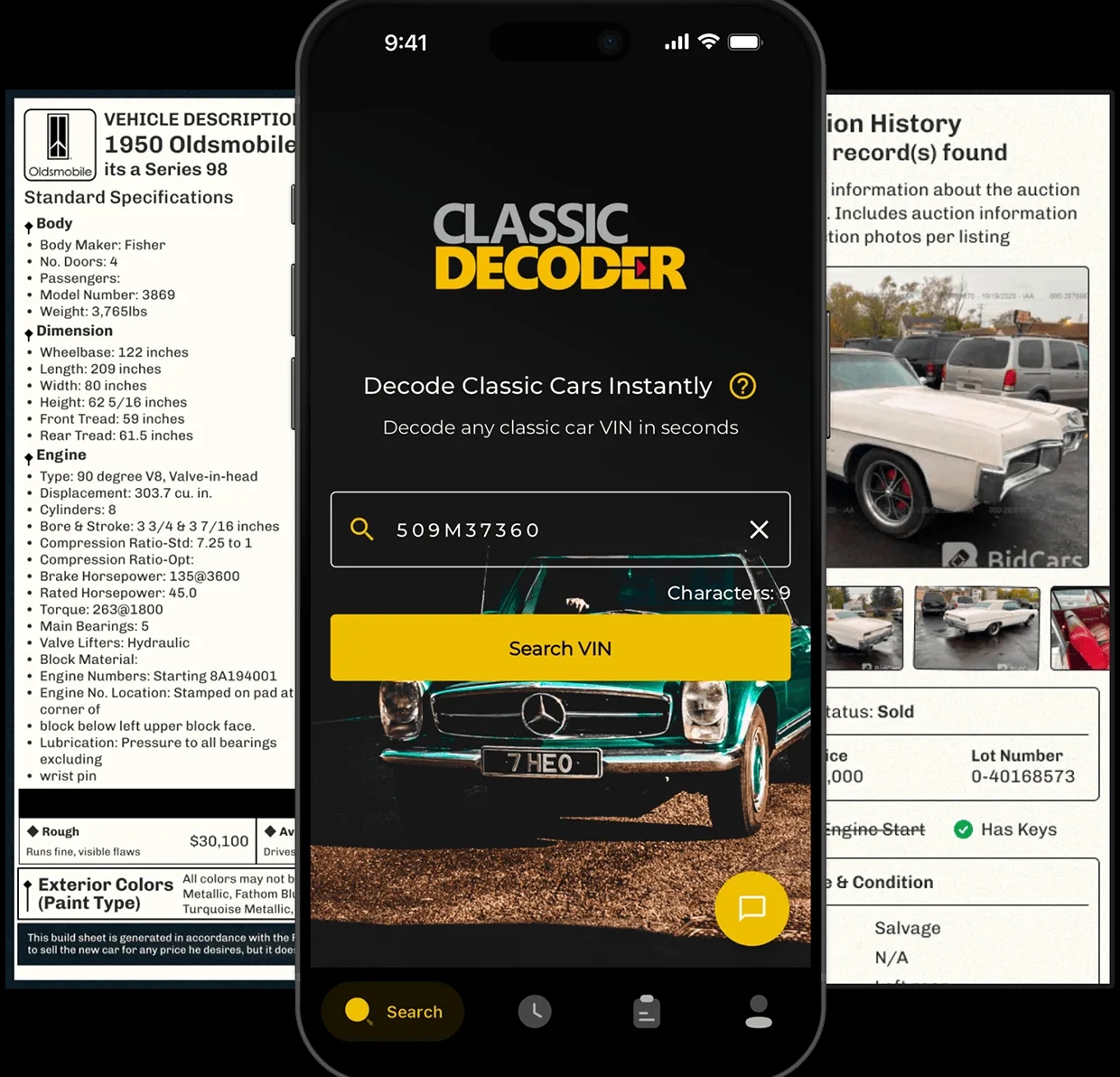1974 Plymouth Valiant
The '74 Valiant: a solid, unassuming American workhorse! Part of Plymouth's long run of reliable compacts, it wasn't flashy, but reflected the era's simpler tastes. Think boxy shape, practical design. Not a cultural icon like a Mustang, but a trusty steed for everyday life. A true slice of '70s Americana.
Decode Classic VINs to Get Vehicle History Report and Build Sheet
The 1974 Plymouth Valiant Scamp: A Snapshot of Automotive History
The 1974 Plymouth Valiant Scamp 6 Series VH stands as a testament to American automotive resilience in the economically challenging 1970s. Part of the Valiant lineage that started in 1960, the Scamp came onto the scene as rising fuel costs and regulatory demands began reshaping the industry. It managed to carve out a niche, thanks to new safety features and emission controls that aligned with the evolving landscape.
While it faced stiff competition from more fuel-efficient imports, the Scamp's practicality and affordability attracted a loyal customer base. It became a household name for those seeking dependable transportation without breaking the bank—a necessity during the tough economic times following the 1973 oil crisis.

1974 Plymouth Valiant Models:
Select the vehicle's model to see the correct data for it.
How Much is Plymouth Valiant Worth?
Original MSRP :$3,905.00
Outstanding
Clean
Average
Rough
1974 Plymouth Valiant Specs
Interested in buying a classic car or selling one?
Access detailed history reports for classic vehicles from hundreds of manufacturers.
- Accident Records
- Theft Records
- Loan & Lien Information
- Auction Information
- Salvage Information and more

Noteworthy Features of the 1974 Scamp
The Scamp boasted a 225 cubic inch slant-six engine producing 105 horsepower. This offered a blend of reliability and decent performance, suitable for its era. The vehicle's top speed flirted with 100 mph, while its slant six engine was well-regarded for its durability and efficiency. Such longevity often makes these engines a subject of admiration among classic car enthusiasts today.
Interestingly, the Scamp even had optional extras like the "Mod Top," a floral vinyl roof that gave the car an unmistakable aesthetic appeal. It's these quirks that have helped the car maintain a dedicated following among collectors.
Learn more about a classic car: Get Build Sheet by VIN.
Access reproduced classic build sheets to learn more about your classic vehicle details.
- Standard Specifications
- Original Base Price
- Standard & Optional Equipment
- Exterior & Interior Colors
- VIN ID & Location description

Pop Culture and Collectibility
Though not prominently featured in blockbuster films, the Scamp's cultural footprint includes appearances in lively commercials from its heyday. Its sibling, the Valiant, notably starred in Spielberg's "Duel," creating a pop culture connection that rubs off on the Scamp by association.
Collectors value the Scamp for both its practical virtues and the evocative nostalgia it generates. In the collector's market, well-maintained models have been known to fetch between $5,000 to $20,000, reflecting their intrinsic appeal.
Interested in Buying or Selling a Classic Car?
When it comes to buying or selling classic cars like the 1974 Plymouth Valiant Scamp, knowing the vehicle's backstory is crucial. Not only does it affect value, but it also informs the potential and preservation needs of the car. A solid classic car history report is an essential tool here, providing details about:
Accident Records
Theft Records
Loan & Lien Information
Auction Information
Salvage Information and more...
For effortless classic car VIN lookup, Classic Decoder offers detailed reports. Check out their service, which provides meticulous insights into your vehicle's background. For models with VIN configurations that aren't as common, the services include a and even a option.
Can You Trust the Vehicle's Build?
Another gem in unraveling any classic's heritage is the car build sheet, detailing original specifications and factory features. If you're piecing together history for a restoration or sale, these insights are gold! Learn more about build sheets .
Whether you're in the hunt for the authenticity of a or just love soaking up those riveting automotive stories, making an informed decision is always key. Happy driving (and collecting)!
Classic VIN Decoder App |Now available on both Android and iOS!
At Classic Decoder, we believe that developing a mobile app is a great way to extend our classic car data solution hub to as many users as possible across the globe. Our app is built with users and precision in mind. It holds the key to unlocking the history and details of any retro car at your fingertips. It also comes with fascinating and user-friendly features that make it stand out from other mobile apps designed for this purpose.
The Classic Decoder app lets you decode and lookup any classic VIN in a flash. Access accurate vehicle information and history, make an informed decision faster, and buy and trade in classic cars with confidence.

Download The Classic Decoder App now.
Some unique features include:
- Support all classic VIN lengths from 5 to 13 digits
- Support classic cars produced from 1910 – 1980
- Online Garage features – to add and manage your vehicles
- 24/7 Customer Support
- Easy onboarding for first-time users
Explore Plymouth Valiant from Other Years
Frequently Asked Questions
The '74 Valiant, now that's a classic! You'd typically find a couple of different engines under the hood; the most common were the Slant-Six and a V8 option, though the V8 wasn't as widely seen, kinda like finding a four-leaf clover. The Slant-Six was a workhorse, known for its reliability – think of it as the reliable friend who's always there for you. The V8, on the other hand, offered more pep but with that usually came slightly less mileage. So, it really depended on what you valued – reliability versus power; it’s a classic trade-off, you know? Finding out which engine was installed in a specific model would really need a closer look at the vehicle identification number (VIN), or maybe some old paperwork if the owner is still around. This is a crucial piece of information for any prospective buyer.
Gas mileage back then... well, let's just say it wasn't what we're used to today. You're looking at figures that are, frankly, pretty modest by modern standards; think low teens to maybe the high teens, depending on the engine and how you drive. Driving habits, like, you know, lead-footed driving versus gentle acceleration, can make a big difference, even in a Valiant. Plus, factors like the car's overall condition and whether you've done any engine tweaks will play a role too. It's not uncommon to see variations, so don't be shocked if it's a bit different from what you expect.
Compared to its contemporaries, like, say, a Datsun or a Vega, the Valiant usually held its own pretty well. While it might not have been the speed demon, it provided solid, reliable transportation; it's the type of car that just gets you from A to B, reliably. Feature-wise? Think basic but functional. You're not gonna find all the bells and whistles here—no power windows or fancy sound systems, unless it had some aftermarket upgrades—but for the time it was a pretty standard package for its class. It was a dependable, economical option that was a pretty solid family car; this makes it a desirable classic.
Like any classic car of that age, the Valiant has a few quirks. Rust is a biggie, especially if the car has spent much time in areas with harsh winters (salty roads are the worst!). Electrical gremlins can pop up; it's something that many vintage car owners will tell you about. The brakes can sometimes need attention; and the carburetor, oh boy, those can be a pain in the neck. Now, some of this is just general classic car stuff, but regular maintenance and care are absolutely crucial. You really need to be on top of things, making sure everything's in check. Think of it like regular check-ups at the doctor—it's preventative, and it pays off in the long run.
The Valiant's value is a really interesting one. It depends heavily on the condition, of course; a pristine, numbers-matching example will fetch a good deal more than one that needs a bit of work. Plus, the specific trim level and options can also matter quite a bit. There's definitely an enthusiast community out there for these cars; however, it's not quite at the level of, say, some of the muscle cars from that era. Think of it like this: it's a solid, reliable classic, but perhaps not one that will fetch a king's ransom unless it's really, truly special. Checking recent auction prices and collector car guides will give you a clearer idea.

